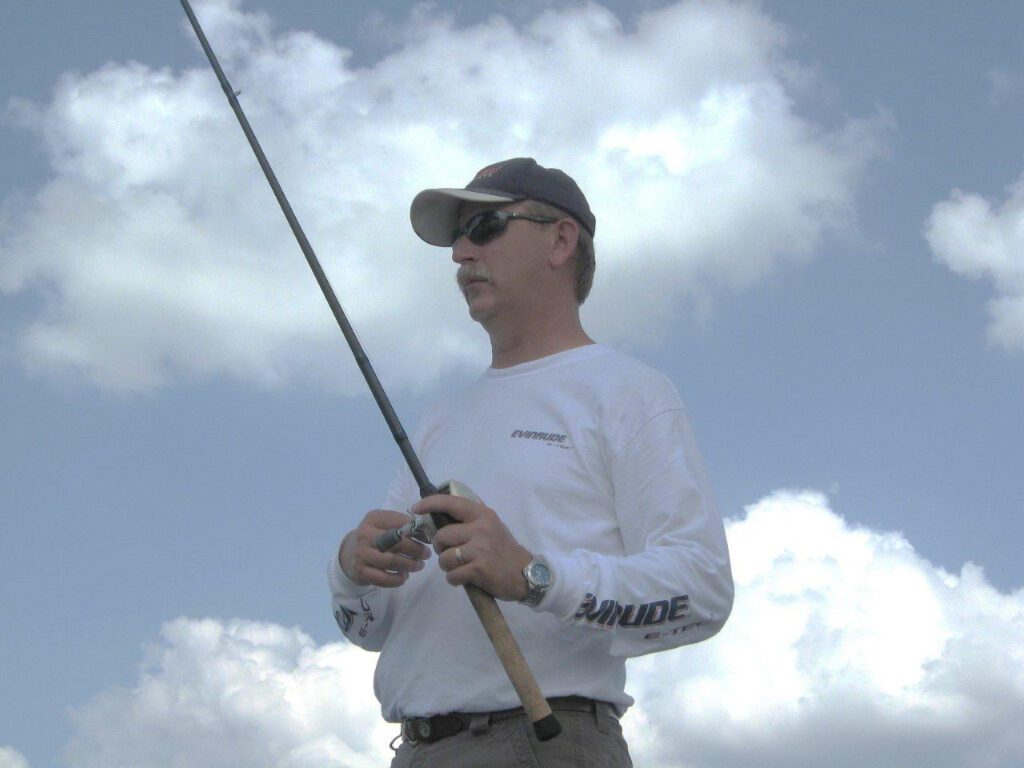
Fortunately for us humanoids, we come equipped with a variety of things that help us navigate the world, especially when you like to hunt and fish. It’s our senses; those inborn things that give us the ability to see, to hear, to feel.
Take squirrel hunting for example. You’re sitting in the woods on a cool fall morning and you hear a variety of sounds, like birds singing, leaves falling, the rustle of trees when there is a breeze. Then you detect something different. You hear the sound of tiny claws on bark or the soft “whack….whack” of something eating a hickory nut. You don’t need to see it; you already know it’s a squirrel.
Fishing for an unseen quarry lurking beneath the surface calls into play most of our senses. We hear surface feeding fish, we see our line twitch when a fish takes the lure.
It’s the sense of touch, the ability to feel what’s going on down there out of sight that may be of utmost importance. Fishing rods made of graphite and boron used by most anglers today are super-sensitive scientific marvels allowing the angler to feel the gentle pick-up when a bass inhales a plastic worm. Even with these sensitive fibers working on the side of the angler, though, sensitivity to touch is of utmost importance.
Some fishermen have a sense of touch that is more acute than other anglers. Mike Lowrance, a Murfreesboro, TN angler, is one of those. He has become a nationally-known specialist at catching fish by “feel”. He competes in national tournaments matching his skills, cast-for-cast, with the best in the business and he is able to hold his own with any of them.
Lowrance’s secret is that he has perfected the fine art of super-sensitivity more so than most anglers.
“I am of the opinion,” says Lowrance, “that my senses are no better than anybody else’s. The big difference is that when I’m fishing, I don’t let anything distract me. My attention is on what I’m doing while others may be distracted by something else. They only feel about 40 percent of what they should because they’re not paying attention.
“I cannot use a closed face reel….it has no feel. I prefer a revolving spool reel and I’ve learned you have to keep your finger in contact with the line at all times.
“When you use your line as the sensitivity device, you’re feeling it all, right down to the vibration of the lure. You know what your lure is doing. You can feel if you’re running it properly. I feel I have a quicker response with the line than the rod. As a matter of fact,” he added, “I know I do.”
One of Lowrance’s secrets is that he uses a line that has a smooth finish and that lays down smooth and flat on the spool. While he uses graphite rods because of their quickness and fast response, the line is of more importance to Lowrance.
“The rod is the casting equipment. I feel the fish with the line,” he said.
Hearing about Mike Lowrance and his ability to fish by feel, I couldn’t help but speculate that most anglers would do a better job at what they do if they forced themselves to concentrate more on feel.
Try to imagine how it would be to spend a day anchored at a favorite worm hole wearing a blindfold. After a period of adjustment where you cast out into blackness and felt the lure settle to the bottom, it is logical to imagine that your sensitivity would begin to improve as you are forced to rely strictly on the message the line is conveying to you as you slowly work the plastic worm over structure.
Mike Lowrance developed his sensitivity in this manner, after a fashion. He did it, however, out of necessity rather than choice.
Mike Lowrance is totally blind.
 fgazette.com Community news site for Union Parish Louisiana
fgazette.com Community news site for Union Parish Louisiana